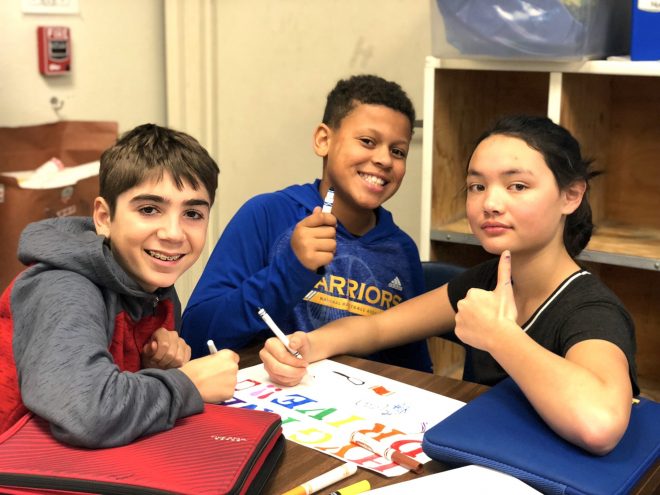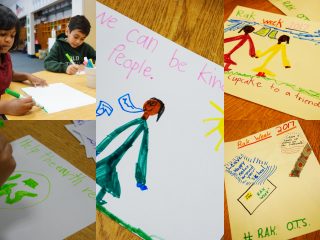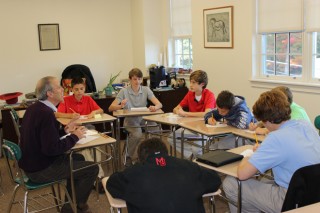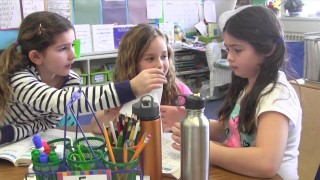This 30-day kindness challenge took place during students’ advisories and they participated in one or two kindness activities every week.
The kindness curriculum was created by the Greater Good Science Center at UC Berkeley. Through this program, the school received access to outstanding kindness-building lesson plans following the successful completion of the challenge.
There were numerous activities from which to choose in four categories:
– Promoting Cyber-Kindness: Students learned practical skills to create a more positive online presence (social media, apps and video games) and the habits of heart and mind to be kind online.
– Strengthening Peer Relationships: Students practiced activities to develop empathy, active listening, and conflict resolution. This pathway focused on building constructive interactions for a positive classroom and school culture.
– Developing Positive Mindsets: Students practiced self-management and self-care strategies (gratitude, goal setting and positive framing of situations) to monitor their own feelings and be kind to others.
– Fostering Empathy: Shared identity and fostering civic discourse activities help students beyond individual relationships to tackle larger issues and trends such as stereotypes and bullying based on identity.
At Sea Crest School, we believe that teaching our children how to practice kindness, be more empathetic, and manage their own emotions and actions, will cultivate their character and help them navigate our complex world.



